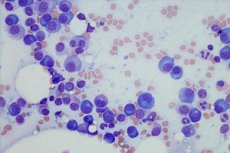New publications
Circadian rhythms can be used to improve the efficacy of cancer immunotherapy
Last reviewed: 02.07.2025

All iLive content is medically reviewed or fact checked to ensure as much factual accuracy as possible.
We have strict sourcing guidelines and only link to reputable media sites, academic research institutions and, whenever possible, medically peer reviewed studies. Note that the numbers in parentheses ([1], [2], etc.) are clickable links to these studies.
If you feel that any of our content is inaccurate, out-of-date, or otherwise questionable, please select it and press Ctrl + Enter.

An interdisciplinary team of researchers at the University of California, Irvine, has found that circadian rhythms — a biological regulator that governs the daily rhythms of physiological processes, including immune function — can be used to improve the effectiveness of cancer immunotherapy using checkpoint inhibitors. These inhibitors block various proteins that prevent binding to tumor cells, allowing immune T cells to destroy the tumor.
The study, published in the journal Nature Immunology, advances our understanding of the complex relationships between circadian rhythms, immune regulation and tumor development, and shows that a therapeutic approach that optimizes the timing of drug administration based on individual circadian rhythms offers new avenues for prevention and treatment.
"Circadian rhythm disruption is an integral part of modern society and may contribute to the rise in various types of cancer. We found that proper regulation of circadian rhythms is essential for suppressing inflammation and maintaining maximum immune function," said lead study author Selma Masri, an assistant professor of biological chemistry at the University of California, Irvine. "Understanding how circadian rhythm disruption contributes to disease progression may lead to behavioral changes to reduce cancer risk."
The team used cutting-edge single-nucleus RNA sequencing techniques in a genetic model of colorectal cancer and identified circadian-dependent changes that control the number of myeloid cells that suppress T-cell activation. They found that disruption of the internal biological rhythm in the epithelial cells lining the intestine alters cytokine secretion, leading to increased inflammation, an increase in the number of immunosuppressive myeloid cells, and cancer progression.
These findings demonstrate that delivering immunotherapy at times of day when immunosuppressive myeloid cells are most abundant significantly increases the efficacy of checkpoint blockade in the treatment of solid tumors.
"As we deepen our understanding of the fundamental mechanism of circadian regulation of immunity, we may be able to harness the power of the body's natural rhythms to fight cancer and develop more personalized and effective treatment strategies," said lead study author Bridget Fortin, a doctoral student in the Department of Biological Chemistry at the University of California, Irvine.
While this study represents a significant step forward in defining circadian control of antitumor immunity, the team believes that future studies should focus on exploring additional factors and cell types that influence response to checkpoint inhibitor therapy depending on the time of day.
The team also included graduate students and faculty from the UC Irvine School of Medicine's departments of biological chemistry, physiology and biophysics, surgery, and medicine.
